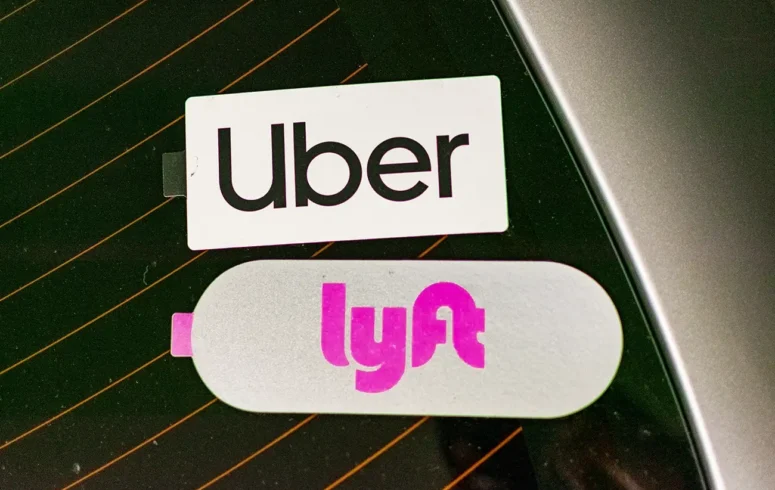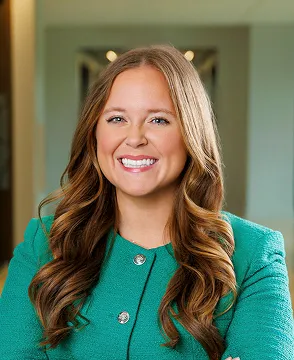Uber & Lyft Accidents
Navigating Complex Legal Challenges Involving Accidents Involving Ridesharing Services Uber and Lyft.
Contact Simon Law to schedule your free case evaluation.
Uber & Lyft Accident Attorneys at Simon Law
Accidents involving Uber and Lyft vehicles can be particularly complex due to the involvement of multiple parties, such as the rideshare company, the driver, and other drivers or pedestrians. At Simon Law, we understand the intricacies of rideshare accident cases and are dedicated to providing comprehensive legal representation to protect your rights. Our experienced attorneys will navigate the complex legal landscape, including insurance claims and liability issues, to ensure you receive the compensation you deserve for your injuries, medical expenses, lost wages, and pain and suffering.

About Uber & Lyft Accidents
Ridesharing accidents differ from typical car accidents due to the unique nature of rideshare operations and the insurance policies involved. When an Uber or Lyft driver is involved in an accident, determining liability can be complicated, as it depends on whether the driver was logged into the app, actively transporting passengers, or driving without passengers. Uber and Lyft provide insurance coverage that varies based on the driver’s status at the time of the accident, which can impact the compensation available to injured parties.
What Should I Do After an Uber or Lyft Accident?
If you are in an Uber or Lyft when an accident occurs, it’s crucial to take the following steps:
- Check for injuries: When it is safe to do so, unbuckle your seatbelt and check for injuries to yourself and others. Call 911 immediately and request an ambulance if you suspect any injury, even if it appears minor. Do not attempt to move any injured people to prevent further injury unless there is immediate danger.
- Call police: In any accident, you should request a police officer to file a police report at the scene. A police report will detail the accident’s cause from your perspective that can be used later. Request a copy of the report and take note of the responding officer’s name, department, badge number, phone number, and police report number.
- Get the other driver’s insurance information: Document the essential information from their insurance card, including full name, insurance company, policy number, and the insurance company’s phone number.
- Gather evidence from the scene: Take plenty of photographs of the accident scene and capture the vehicle and damage from multiple angles. Additionally, take photos of visible injuries, the damage on all vehicles, skid marks, debris, and location markers. If any witnesses or other passengers are present, document their names and contact information.
- Refrain from discussing the accident or fault: When on the scene, avoid discussing the accident with other involved parties. Do not admit any fault, apologize for actions, or say anything that could be viewed as an admission of guilt. Be honest with police officers and tell the officer what happened from your perspective.
- Do not sign any waivers or provide insurance companies with a recorded statement: After a rideshare accident, it’s likely an insurance adjuster will contact you to provide a recorded statement about the accident. Unfortunately, insurance companies may use your words against you in an effort to minimize or deny your claim. The best course of action is to decline providing a statement as you are not required to provide one.
- Seek medical attention: Your health is a top priority. Even if your injuries seem minor, it’s crucial to see a doctor as soon as possible. Internal injuries won’t always present obvious symptoms right away, and if left untreated, can worsen over time. Not only could it be dangerous to your health, but waiting too long could give the insurance company grounds to argue the injuries are unrelated to the accident.
Who is Liable for My Injuries in an Uber or Lyft Accident?
Determining liability in an Uber or Lyft accident can be complex due to the involvement of multiple parties and different insurance coverages based on the driver’s status. Here are the key factors that influence liability:
- Driver’s status: Liability depends on whether the driver was:
- Logged into the rideshare app but not carrying passengers
- Actively transporting passengers
- Not logged into the app
- Uber or Lyft’s insurance coverage:
- Logged into the app, no passengers: If the driver is logged into the app but not carrying passengers, Uber and Lyft typically provide limited liability coverage that can supplement the driver’s personal insurance.
- Actively transporting passengers: When the driver is actively transporting passengers, Uber and Lyft offer more comprehensive coverage, including liability, uninsured/underinsured motorist coverage, and contingent collision and comprehensive coverage.
- Not logged into the app: If the driver is not logged into the app, their personal auto insurance is the primary coverage. Uber and Lyft’s insurance policies do not apply in this scenario.
- Driver’s personal insurance: The driver’s personal insurance policy may also play a role, particularly if the driver was not logged into the app or if Uber and Lyft’s coverage is insufficient to cover all damages.
- Other parties: In some cases, other parties involved in the accident (i.e. other drivers or pedestrians) may share liability. Determining their responsibility requires a thorough investigation of the accident circumstances.
- Comparative fault: If multiple parties, including the injured party, share fault for the accident, liability will be determined based on the comparative fault laws of the state. This means your compensation could be reduced by your percentage of fault.
What if the Uber or Lyft Driver Was Not Logged Into the App At The Time of the Accident?
If the Uber or Lyft driver was not logged into the app at the time of the accident, their personal auto insurance will be the primary source of coverage for any injuries and damages. Here are the key points to understand in this scenario:
- Primary insurance: When the driver is not logged into the rideshare app, Uber and Lyft’s insurance policies do not apply. Instead, the driver’s personal auto insurance will be responsible for covering any claims arising from the accident.
- Coverage limits: The compensation available to you will depend on the coverage limits of the driver’s personal insurance policy. If the driver has only the minimum required coverage, it may not be sufficient to cover all your medical expenses, lost wages, and other damages.
- Uninsured/underinsured motorist coverage: If the driver’s personal insurance is insufficient to cover your damages, you may be able to seek compensation through your own uninsured/underinsured motorist (UM/UIM) coverage, if you have it. This type of coverage is designed to protect you in situations where the at-fault driver lacks adequate insurance.
- Other liable parties: If other drivers or parties were involved in the accident, their insurance policies might also provide additional sources of compensation. Establishing liability among multiple parties requires a thorough investigation of the accident.
- Legal assistance: Navigating insurance claims and pursuing compensation can be complex, especially when dealing with underinsured drivers. Consulting with an experienced personal injury attorney can help you understand your options, negotiate with insurance companies, and seek the full compensation you deserve.
- Evidence collection: Regardless of the driver’s status, it is important to gather as much evidence as possible at the scene of the accident. This includes taking photos, obtaining witness statements, and securing a copy of the police report. This evidence will be crucial in supporting your claim.
Can I Sue Uber or Lyft Directly for My Injuries?
Suing Uber or Lyft directly for your injuries in a car accident is generally challenging due to the way these companies classify their drivers as independent contractors rather than employees. However, there are specific circumstances under which you may be able to hold Uber or Lyft directly liable:
- Vicarious liability: Generally, employers can be held responsible for the actions of their employees. However, since Uber and Lyft classify their drivers as independent contractors, vicarious liability typically does not apply. This classification limits the companies’ direct responsibility for their drivers’ actions.
- Negligence in background checks: You might have a case against Uber or Lyft if you can prove that the company was negligent in hiring or retaining the driver. For example, if the driver had a history of reckless driving or other disqualifying behavior that Uber or Lyft should have identified during a background check, you might be able to hold the company accountable for negligence.
- Defective app design: If you can demonstrate that the accident was caused by a defect or issue with the Uber or Lyft app itself, such as navigation errors or other operational flaws, you might have grounds to sue the company directly.
- Insurance coverage: While you may not be able to sue Uber or Lyft directly, both companies provide insurance coverage for accidents involving their drivers. The coverage provided depends on the driver’s status at the time of the accident (logged into the app, no passengers or actively transporting passengers)
- Pursuing a claim: Even if you cannot sue Uber or Lyft directly, you can file a claim with the insurance coverage provided by the rideshare company. Working with an experienced attorney can help you navigate this process and maximize your chances of obtaining fair compensation.
- Consult with an attorney: Determining liability in rideshare accidents can be complex. An experienced personal injury attorney can evaluate the specifics of your case, identify all potential sources of compensation, and advise you on the best course of action.
What Types of Compensation Can I Seek in an Uber or Lyft Accident Case?
If you are injured in an Uber or Lyft accident, you may be entitled to various types of compensation to cover your losses and damages. The types of compensation you can seek include:
- Medical expenses: This includes the cost of all medical treatment related to your injuries, such as:
- Emergency room visits
- Hospital stays
- Surgery
- Doctor appointments
- Physical therapy
- Prescription medications
- Future medical expenses for ongoing care
- Lost wages: If your injuries prevent you from working, you can seek compensation for the income you have lost during your recovery period. This includes:
- Regular wages
- Overtime pay
- Bonuses
- Sick leave or vacation days used during recovery
- Loss of earning capacity: If your injuries result in a long-term or permanent disability that affects your ability to earn a living, you may be entitled to compensation for the loss of future earning capacity.
- Pain and suffering: This covers the physical pain and emotional distress you have endured as a result of the accident. Factors considered in determining pain and suffering compensation include:
- Severity and duration of pain
- Impact on your quality of life
- Emotional and psychological effects, such as anxiety, depression, and PTSD
- Property damage: If your personal property, such as your vehicle, was damaged in the accident, you can seek compensation for repair or replacement costs.
- Loss of consortium: In some cases, spouses or family members of the injury party may be entitlted to compensation for the loss of companionship, affection, and support resulting from the injury.
- Punitive damages: In cases where the rideshare driver’s conduct was particularly reckless or egregious, you may be awarded punitive damages. These are intended to punish the wrongdoer and deter similar behavior in the future.
Legal and Other Expenses
Additionally, you may be able to recover other expenses related to the accident, such as:
- Legal fees: Some settlements or court awards may include compensation for attorney fees and court costs.
- Transportation costs: Expenses for travel to and from medical appointments.
Insurance Coverage
It’s important to understand the insurance coverage provided by Uber or Lyft, which varies based on the driver’s status at the time of the accident:
- Logged into the app, no passengers: Limited liability coverage is available.
- Actively transporting passengers: Comprehensive coverage, including liability, uninsured/underinsured motorist coverage, and contingent collision and comprehensive coverage, is available.
Seeking Legal Assistance
Navigating the process of seeking compensation in an Uber or Lyft accident case can be complex. An experienced personal injury attorney can help you:
- Evaluate the full extent of your damages
- Gather and present necessary evidence
- Negotiate with insurance companies
- Pursue a fair settlement or take your case to court if needed
Meet Our Dedicated Team of Attorneys
When you need qualified and reliable guidance, you know where to turn. Simon Law is ready to listen to your story and review the complex aspects of your case.









Contact Our Firm Today
Our mission is to provide the highest-quality legal services with integrity, professionalism, and respect for our clients. Simon Law has the resources and expertise to handle your case without sacrificing the personalized counsel and support you deserve.